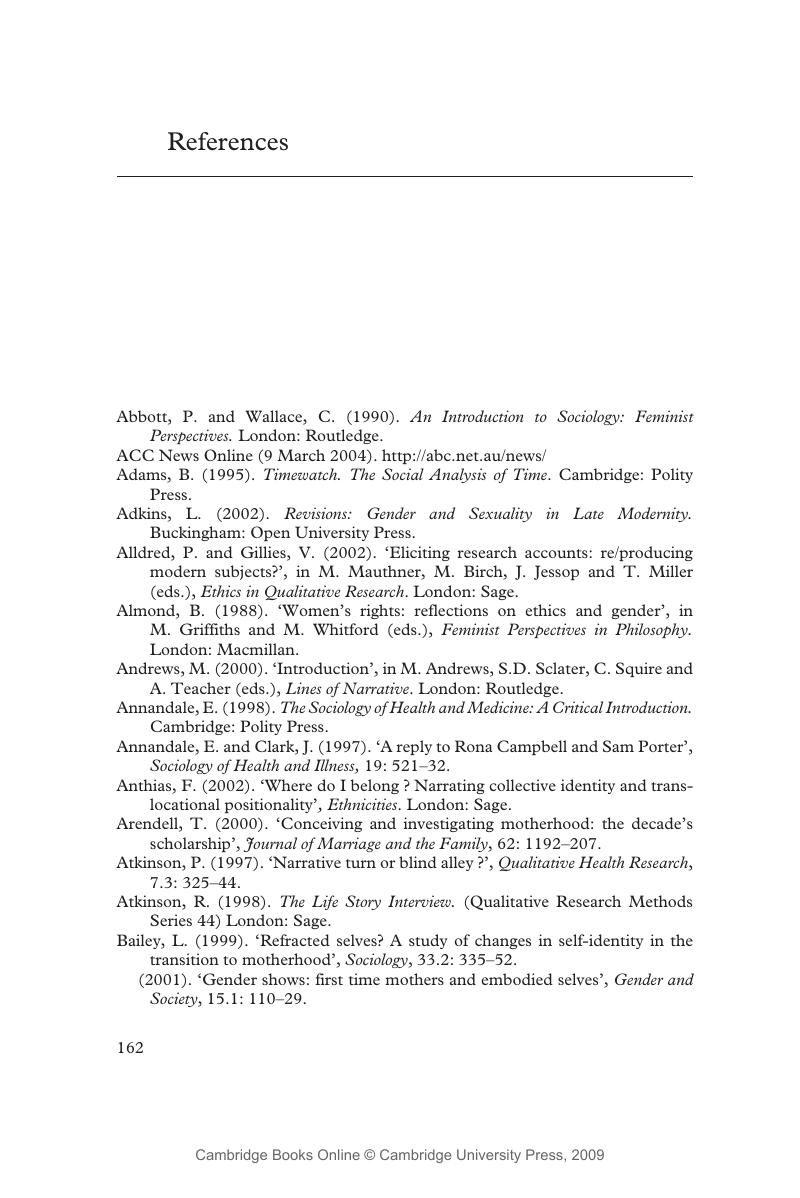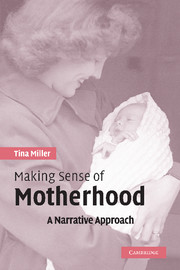Book contents
- Frontmatter
- Contents
- Dedication
- Acknowledgements
- Introduction
- 1 The storied human life: a narrative approach
- 2 Making sense of motherhood: cultural scripts
- 3 Setting the Western context: mothering in late-modern society
- 4 Anticipating motherhood: the antenatal period
- 5 Making sense of early mothering experiences
- 6 A return to normal: becoming the expert
- 7 Conclusions and reflections: making sense of motherhood
- References
- Index
- References
References
Published online by Cambridge University Press: 22 September 2009
- Frontmatter
- Contents
- Dedication
- Acknowledgements
- Introduction
- 1 The storied human life: a narrative approach
- 2 Making sense of motherhood: cultural scripts
- 3 Setting the Western context: mothering in late-modern society
- 4 Anticipating motherhood: the antenatal period
- 5 Making sense of early mothering experiences
- 6 A return to normal: becoming the expert
- 7 Conclusions and reflections: making sense of motherhood
- References
- Index
- References
Summary

- Type
- Chapter
- Information
- Making Sense of MotherhoodA Narrative Approach, pp. 162 - 171Publisher: Cambridge University PressPrint publication year: 2005



